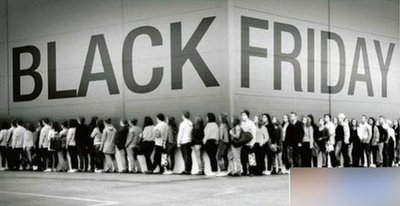Black Friday 2025: A Global Shopping Frenzy
Black Friday, once a U.S.-centric event, has evolved into a global retail spectacle. In 2025, shoppers from around the world participated in the annual sales event, with some 2.5 billion people making purchases. This year's Black Friday saw record sales, particularly online, with e-commerce platforms driving a significant portion of the global shopping rush.
In the United States, major online retailers like Amazon, Walmart, and Target experienced a surge in sales, while international giants such as Alibaba and JD.com saw similar success in their respective markets. In fact, more than 80% of Black Friday transactions took place online, further cementing the dominance of e-commerce in shaping consumer habits.
Tech gadgets led the charge in terms of demand, with smartphones, smart TVs, and other electronics topping shoppers' wishlists. The demand for smart home devices—like Amazon Echo and Google Nest—also saw a significant increase. Consumers were quick to take advantage of discounts on popular tech brands like Apple, Sony, and Samsung.

E-commerce: The Dominant Force
A key trend emerging from Black Friday 2025 is the continuing shift towards online shopping. With early-bird deals launching well before the actual day, many consumers opted for the convenience of purchasing from home. This year, mobile shopping also played a significant role, as many people turned to smartphones to snag deals.
As e-commerce platforms optimized their websites and apps for a more seamless shopping experience, shoppers responded enthusiastically. Personalized shopping experiences powered by artificial intelligence (AI) were widely embraced, making it easier for consumers to find relevant deals and products based on past shopping behavior.
While physical stores did experience increased foot traffic compared to previous years, online shopping clearly emerged as the preferred option for many. This shift also led to the expansion of click-and-collect services, where customers could shop online and pick up their purchases at physical locations, combining the convenience of e-commerce with the immediacy of in-store shopping.
Environmental and Ethical Concerns: Overconsumption and Waste
While the Black Friday boom brought in massive profits for retailers, it also sparked concerns about its environmental impact. The increased demand for fast shipping leads to higher carbon emissions, and excessive packaging waste from online orders contributes to the growing problem of environmental pollution. Packaging materials from plastic, styrofoam, and cardboard have raised alarms about the long-term sustainability of such massive shopping events.
As the global consumer landscape shifts, some critics argue that Black Friday promotes unnecessary overconsumption, with many consumers purchasing items they don’t need. Environmental activists are urging both retailers and consumers to rethink the implications of this hyper-consumerist culture.
In response, some companies are embracing more sustainable practices, such as offering eco-friendly products or adopting carbon-neutral shipping options. However, these changes are still in the early stages, and more work is needed to ensure that the benefits of Black Friday don't come at the cost of the planet's future.

The Rise of Singles' Day and Global Shopping Trends
Although Black Friday is a significant retail event in Western countries, its global counterpart, Singles' Day (November 11), continues to challenge Black Friday’s dominance, especially in markets like China. Singles’ Day has surpassed Black Friday in terms of total sales, driven by the success of platforms like Alibaba and Pinduoduo.
That said, Black Friday remains an important event, particularly in the United States and Europe, where it marks the unofficial start of the holiday shopping season. As e-commerce continues to evolve, future Black Friday sales may look quite different, with more retailers adopting a year-round discount model or offering exclusive deals in the lead-up to the holiday season.
The Future of Black Friday: Sustainability and Tech Innovations
Looking ahead, Black Friday 2026 is likely to see further innovations in both technology and sustainability. Companies may increasingly incorporate artificial intelligence to provide personalized shopping experiences, allowing consumers to find exactly what they want faster and more efficiently. Additionally, virtual reality (VR) may become more integrated into the online shopping experience, allowing customers to "try out" products in virtual spaces before making a purchase.
On the sustainability front, there will likely be a push for more eco-conscious retail practices, such as reducing waste through reusable packaging, offering carbon offset options, and promoting secondhand goods. As more companies face pressure from consumers and regulators to adopt green initiatives, we can expect Black Friday sales to gradually shift toward more ethically conscious retail models.
Contact Information:
Name: Neko Zhang
Email: sales7@ihomebox.com.cn
Tel/Whatsapp: +86-15338785619












